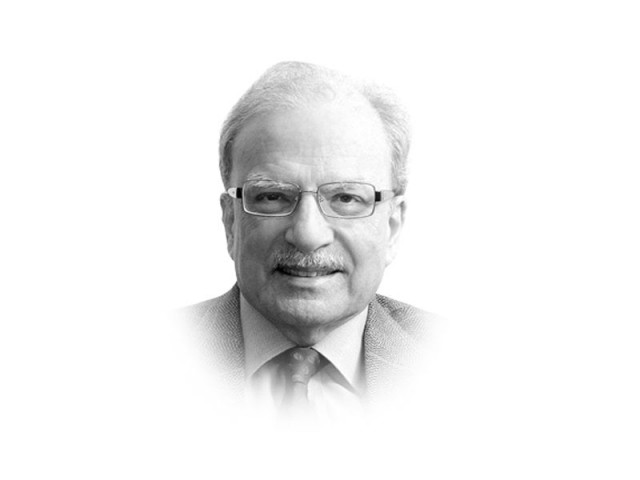Making adjustments to Trump’s world order
Trump presidency will leave an indelible mark on his country’s relations with the Asian continent

The writer is a former caretaker finance minister and served as vice-president at the World Bank
Donald Trump has succeeded in fracturing the world by undermining the global system that had kept the globe united. He has done this in order to give his country greater space in which to operate. Trump’s strong preference is for a multipolar world. I had used the word “multipolar” in a note I prepared for Tom Clawson who had succeeded Robert McNamara as the World Bank president. That was in 1982. The new president was invited to speak at a conference in Tokyo where he was to present his views on the shape of the world. In my note I suggested that the world was no longer bipolar, with two leaders in charge of the divide. On the one side was the United States, leading the free world in a system dominated by rule-based institutions in which member countries took important economic and political decisions. The United Nations Security Council, the International Monetary Fund and the World Bank group belonged to this institutional structure. The World Trade Organisation was added in 1995 to these three to manage global commerce.
On the other side was the Soviet Union that operated on a simple premise: Moscow should do and act in the ways that were good for it. It was this approach that had led the Soviets to invade Afghanistan. In my note for Clawson, I suggested that in addition to Washington and Moscow new centres of power were emerging that would want to follow their one interests in international economic affairs. I identified several of these, including Beijing, Brussels, New Delhi and Tokyo. What would finally come through would be a multipolar rather than a bipolar world. That fracturing did not occur for another quarter century. It is happening now but not in the ways I had predicted. My world was neat arrangement around half a dozen economic nodes.
The uncertainties created by the way President Donald Trump has managed world affairs, would lead to responses on the part of the countries that had relied on the leadership of the United States leadership. Washington’s military presence in many parts of the world, its nuclear umbrella, and defence guarantees provided security for many countries that, without this cover, would have to take care of themselves at great expense. The result would have been chaos. Trump is threatening to withdraw most of these guarantees. The most likely reaction would be hedging by other nations. “Hedging is most common when great powers are unpredictable and the global distribution of power is shifting fast — in other words, during times like today,” wrote Stewart M Patrick, in an article for Foreign Affairs. The article was written when the Trump approach to international politics had begun to take shape but was still not fully articulated. Patrick believes that hedging would prove to be most dramatic in geopolitics. Bets will be placed between the United States and the most relevant regional power — China in Asia, Russia in East Europe and Central Asia, and Iran in the Middle East. The most significant change that hedging will bring will be in Asia which now has a regional power, China. Beijing now has much greater economic presence in the continent.
The way Trump has handled his country’s presence in Afghanistan illustrates very well how Washington is bringing about a major global reorientation. His much-anticipated August 21st speech laid out the policies the administration would pursue in conducting the ongoing war in Afghanistan. There were a number of departures from old practices in managing the United States presence in this long-troubled country. Abandoning the time-barred approach followed by Barack Obama, Trump’s predecessor, the United States committed itself to stay on the ground for as long as that country remained unstable. But its presence will be entirely military with local American commanders operating without constraints imposed by the civilian authority in Washington.
For the Americans to deliver results they needed full cooperation from Pakistan. Islamabad was accused of playing games with Washington that had to stop. If Pakistan continued to support the Taliban and went ahead and provided sanctuaries on its soil to this group, it will be punished. The punishment will take several forms, including the suspension of various aid programmes. Hints were given that Pakistan may be declared a terrorist state. And, finally help was sought from India to stabilise Afghanistan. New Delhi’s economic development programme was lauded and hope was expressed that the large trade surplus India had with the United States would be used to provide economic assistance to Kabul. No self-respecting country would calmly accept the language Trump had used with reference to Pakistan on August 21. Islamabad didn’t. It signalled that it will look to Beijing for help if outside help was needed. Realignment had begun in South-Central Asia.
Published in The Express Tribune, October 9th, 2017.
Like Opinion & Editorial on Facebook, follow @ETOpEd on Twitter to receive all updates on all our daily pieces.















COMMENTS
Comments are moderated and generally will be posted if they are on-topic and not abusive.
For more information, please see our Comments FAQ